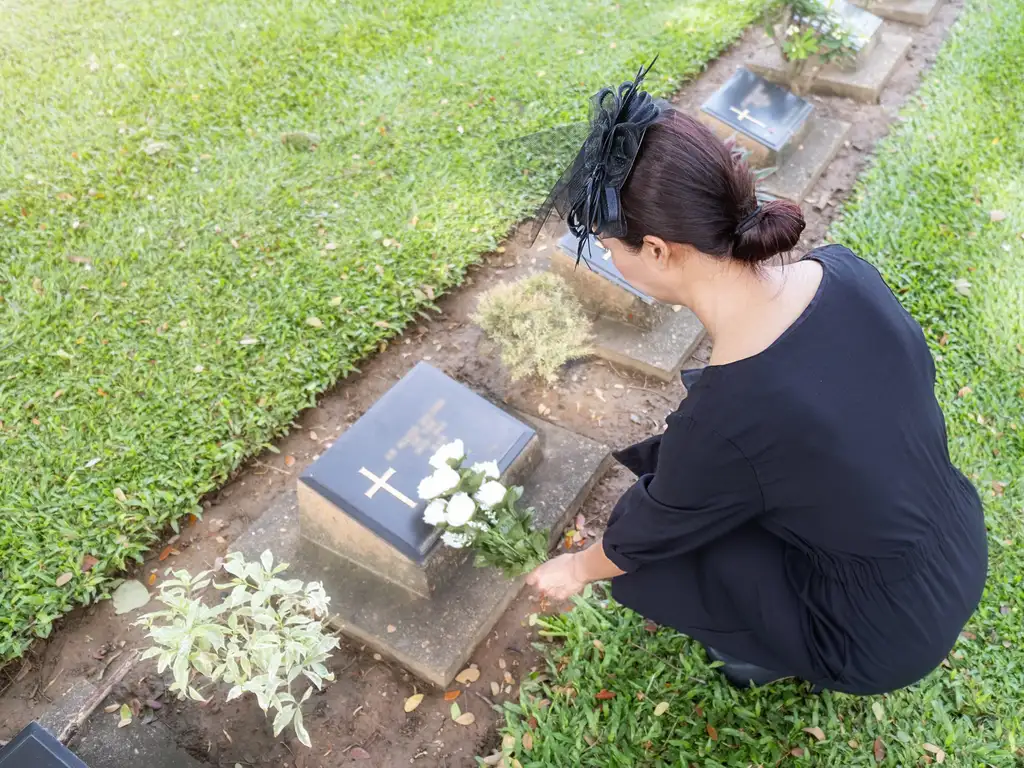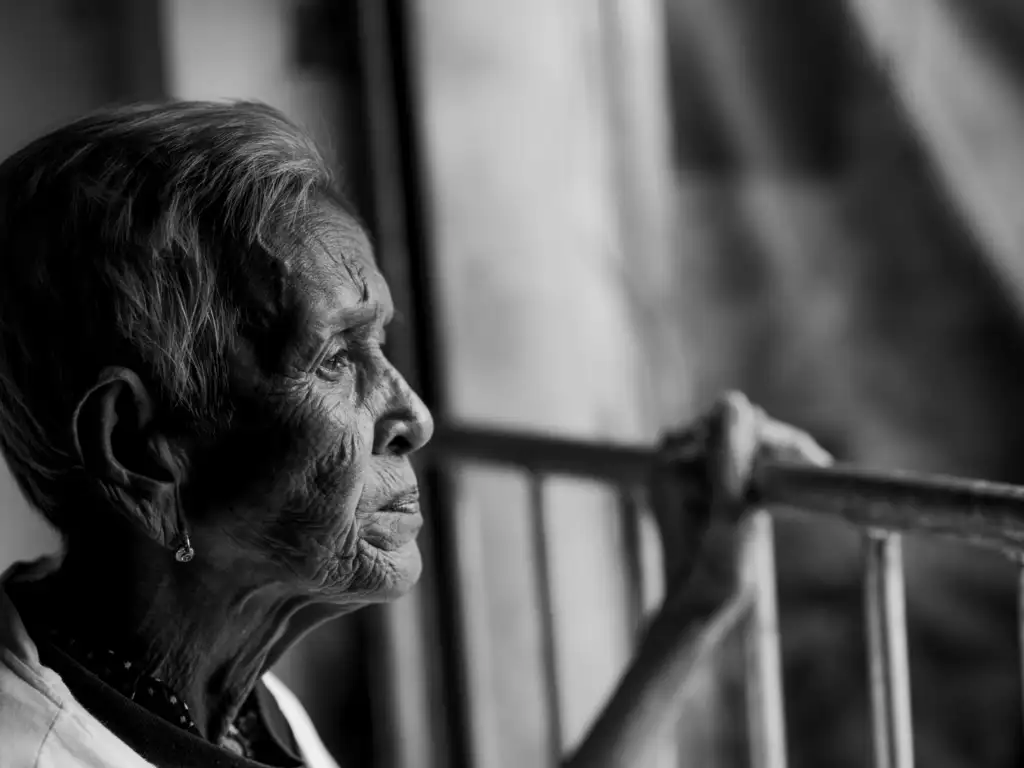Grieving is part of the human experience. Losing loved ones, failed relationships, and other painful experiences result in profound sadness that affects a person’s emotional, mental, and physical health. Whatever the cause, grieving is a natural process and state that everyone will likely experience at least once in their life.
However, grief can have a major effect on Behavioral Health. Those who are unable to cope with a loss of a loved one may develop psychological concerns such as prolonged grief disorder. Thankfully, grief counseling is available to help you manage your emotions over time.
How do grief counseling and therapy work? Is there a grief counselor or Behavioral Health professional that can help you find support and navigate this complex emotion? Is there grief counseling near me that is effective? Is grief counseling in a group versus individual or in person versus virtual better for me?
This article is about grief support and how to find grief counseling and grief support groups.

What Is Grief?
According to the American Psychological Association (APA), grief is a psychological reaction that occurs when a person experiences a tragic event or a significant loss. Grief is as normal as breathing air. You may feel this emotional response if you lose a loved one, get diagnosed with a serious illness, or hurt another person or yourself. Certain losses including the loss of a partner or child can be particularly debilitating.
Along with the intense sadness, grief manifests in other ways. It can also trigger physiological distress like exhaustion and fatigue, insomnia, weakened immune system, depression and even broken heart syndrome.
However, the most powerful effects of grief are psychological in nature. A person may feel separation anxiety, apprehension about the future, emotional distress, confusion, a profound sense of being lost, and other issues that affect their Behavioral Health. If left unchecked and unmanaged, these problems can escalate into more long-term disorders that disrupt a person’s life.

What Are Complicated Grief and Prolonged Grief?
During the most intense moments of grief, you may feel anger, guilt, and numbness toward the severe psychological distresstic event or loss. For most people, these emotions gradually ease until they’ve accepted the loss and integrated it within their life. However, some individuals don’t fully finish the grieving process.
For people who continue to experience the pain and grief over an extended period, they may be diagnosed with Prolonged Grief Disorder, formerly called complicated grief. This issue is also called persistent complex bereavement, and is characterized by intense and continuing grief that affects a person’s daily functioning.
Some grief diagnosis and things to consider:
Prolonged Grief:
Prolonged grief is what most people with persistent bereavement experience. As the name implies, prolonged grief happens over a long stretch of time and can be chronic. Recently, prolonged grief was officially included in the Diagnostic and Statistical Manual of Mental Disorders, Fifth Edition Text Revision under the code F43.81.
Delayed Grief:
Someone who experiences grief months or years after the loss of a loved one may be experiencing delayed onset of grief.

Symptoms of a Grief Disorder
The signs of a grief disorder are not completely different from what normal grieving looks like. The biggest difference is the fact that the symptoms last for a long time or get worse. These problems can prevent someone from living a healthy life and may even lead to self-destructive behavior as a coping mechanism. These can include substance abuse, risky practices, and suicidal thoughts.
Here are some signs that separate grieving from complicated or prolonged grief:
- Intense pain and anguish over the loss of a family member that lasts for months or years
- Extreme focus on the lost loved one or the event that resulted in their death
- Anxiety and apprehension about the future
- Feelings of guilt
- Numbness and indifference to others
- Inability to enjoy hobbies, positive experiences, and life in general long after the loss
- Difficulty sleeping or insomnia
- Obsession over reminders of a loved one/extreme sentimentality
Do You Need Professional Grief Counseling or Grief Therapy?
You do not need to have a grief disorder to receive grief services. People can simply seek grief counseling to help manage difficult emotions and find peace much quicker.
Grief therapy can be done both in person or virtually and be effective. To help you understand the differences between these two services, we’ve outlined them in more detail below.
Grief Counseling
Many people often feel stuck and “muddle through” the grief process without any coping skills or practices to help them navigate the deep sadness caused by loss. Grief counseling is meant to provide individuals with strategies and approaches that help them face their emotions, solve obstacles during the healing process, and maintain bonds with a deceased loved one.
Grief Therapy
In short, grief therapy is more specialized for prolonged or complicated grief. People who’ve developed grief disorders because of their loss or tragic events need support. You will work with Behavioral Health professionals, like licensed counselors, psychologists, social workers and psychotherapists, to address the concerns you may be facing because of severe psychological distresstic grief.
Getting Help for Your Grief
The support from your remaining family, your children, friends, and community is invaluable when it comes to dealing with grief.
However, grief disorders cannot be healed only with advice and support from loved ones. You can benefit greatly from professional help to recover from loss and bereavement concerns.
In general, community health clinics like Care Plus NJ offer Behavioral Health services, online therapy, support groups and other services to help you find support and begin counseling. You and or your family members will work with a professional counselor, therapist, social worker or psychiatrist who can design a counseling plan and wrap-around services.
When getting help to support your Behavioral Health, the hardest step is accepting support and counseling from others. Once you’re able to embancestry you might need assistance, dealing with grief becomes easier.
You are ready to find a therapist or support group to heal and face the loss you endured while addressing all pain, anxiety, self doubt, depression, guilt and any related topics surrounding your grief.
Grief support is available. There is hope. You will heal. Finding the right therapist can offer the grief support you need to heal.
Approaches To Treating/Counseling Grief
Here are some of the most used and empirically validated treatments for people who have developed some form of grief disorder. The commonality of these grief therapies is that they all address responses to loss, whether these are emotional, physical, mental, or spiritual in nature.
Bereavement Therapy
Bereavement therapy is the umbrella term for a group of various treatments focused on helping a person cope with their grief. Individual and family therapies are included under this classification, providing you with specific and personalized strategies for dealing with loss.
Local Grief Support Groups
Joining a support group is another approach recommended for people who are experiencing grief. This practice is usually a part of the larger bereavement therapy process. The grief counselor, therapist, or support group leader will bring together people in similar scenarios, so participants can share their experiences with others in a safe environment.
Group sessions are beneficial for many people because they become a source of support and hope for bereaved individuals. Those who are still in the early stages of the grieving process can find new perspectives and connect to those who are already much further in their journey.
Cognitive Behavioral Therapy
Cognitive behavioral therapy (CBT) is a psycho-social treatment that focuses on changing thinking patterns and creating better coping strategies. CBT has been successfully used in other types of Behavioral Health disorders, such as anxiety and depression. Those who have grief disorders or severe psychological distress can also benefit from CBT, allowing them to unlearn harmful thinking and unhelpful behavior.
During CBT, you will have to evaluate your own thinking patterns, partialityes, and motivations that lead to your complicated and prolonged grief. You and your therapist will work through these patterns and detect root causes, which you can address with healthy coping skills.
CBT also emphasizes the present and what you can do about the “now” instead of dwelling on the events that led to psychological concerns. There’s a lot of focus on moving forward — a great benefit to those who need to make some sense of peace within the changed relationship from death of a loved one.
Grief Counseling During Hospice
Facing the impending death of a loved one during hospice care, especially if they have an incurable condition, is one of the most heartbreaking experiences family members can go through. If you’re in this situation, grief counseling while your beloved is in hospice care can help you face the severe psychological distress of the impending loss.
You can work with a dedicated therapist or social worker who can talk with you about death and loss. These compassionate professionals can also create a supportive environment where your family support each other and can grieve together.
What Is the Role of Grief Therapists and Counselors?
- Offer grief support that is personalized
- Help people understand their feelings and their relationship with a deceased loved one
- Provide a safe space where individuals can talk about their feelings and express painful emotions
- Create or design approaches to help people adjust to a new reality without their loved one
- Encourage the formation and use of healthy mechanisms to cope with grief, such as exercise, relaxation, and journaling
Contact Care Plus NJ for Behavioral Health Care Services
You don’t have to grieve on your own after losing a child or someone important in your life. There are professionals who can guide you through the process, so you can better manage your emotions, adjust to the new reality, and learn new skills while addressing grief and severe psychological distress.
If you’re looking for grief counseling services, please contact Care Plus NJ today. Serving northern New Jersey, we are available in person and virtual with access to grief counseling services. Care Plus NJ offers grief support and therapy through our Behavioral Health care, support group and wrap-around services.
Sources:
https://www.apa.org/topics/grief
https://my.clevelandclinic.org/health/diseases/17857-broken-heart-syndrome
https://www.psychiatry.org/psychiatrists/practice/dsm
https://www.apa.org/ptsd-guideline/patients-and-families/cognitive-behavioral
https://positivepsychology.com/grief-counseling/#how-to-provide-grief-counseling-in-hospice-care
https://www.mayoclinic.org/diseases-conditions/complicated-grief/symptoms-causes/syc-20360374

Jen Velten, LPC, ACS, CCTP, DRCC- Director of Trauma Services
Jen Velten graduated John Jay College of Criminal Justice in 2015 with an MA in Forensic Behavioral Health Counseling and became a Licensed Professional Counselor in 2019. She is licensed in the State of New Jersey with 8 years of experience working with youth and families in the Behavioral Health field. She was a school counselor for 3 years as well as a clinician with Care Plus in the Child/Family Division for the past 8 years. Jen has focused her expertise on helping children and adults to overcome complex severe psychological distress experiences as well as work with the individual identity population groupQ+ community. Jen is trained in TF-CBT, YMHFA, PFA and most recently became certified in EMDR.

